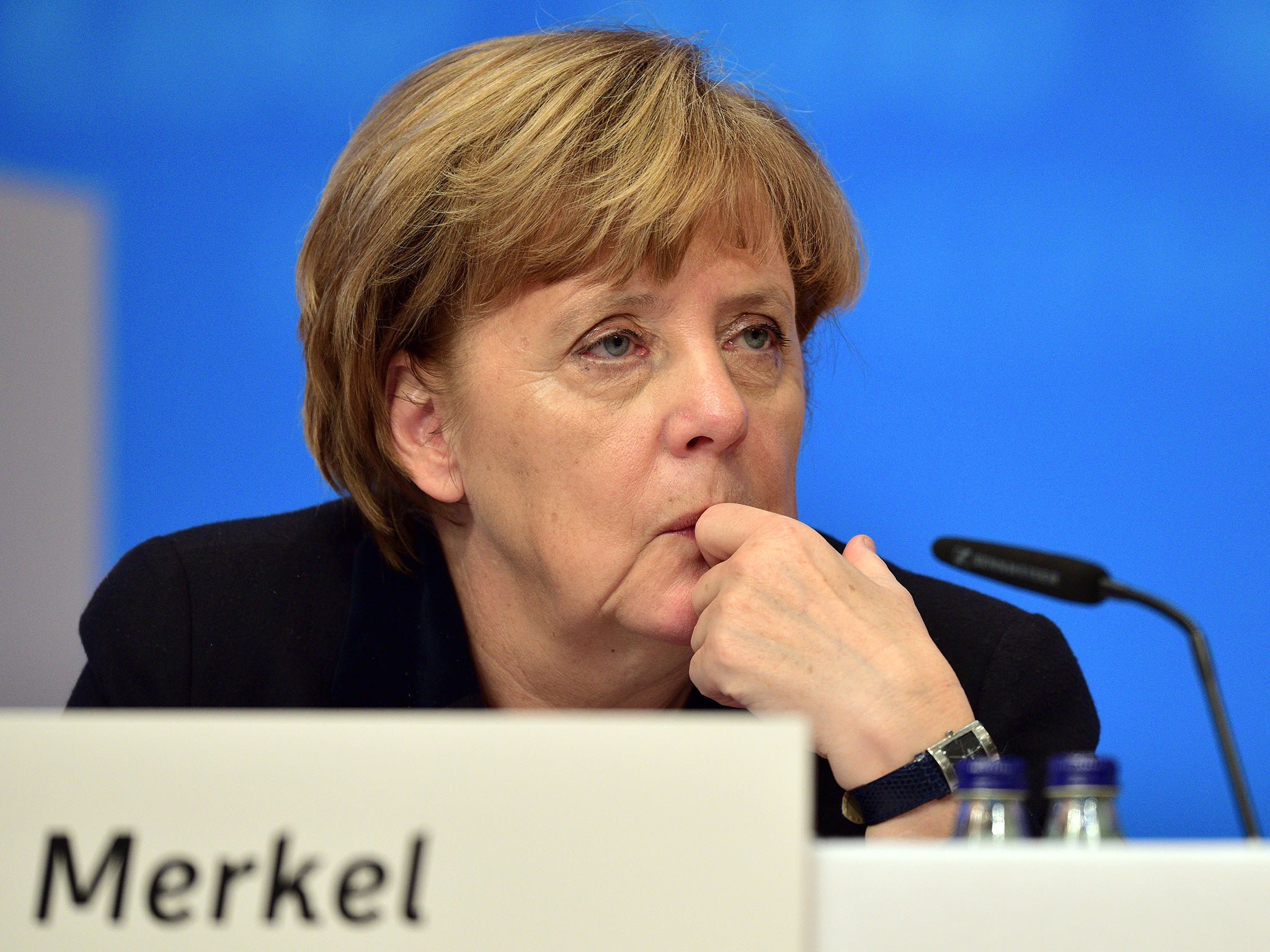Angela Merkel: German Chancellor says multiculturalism is a sham
'We want and we will reduce the number of refugees noticeably'

Your support helps us to tell the story
From reproductive rights to climate change to Big Tech, The Independent is on the ground when the story is developing. Whether it's investigating the financials of Elon Musk's pro-Trump PAC or producing our latest documentary, 'The A Word', which shines a light on the American women fighting for reproductive rights, we know how important it is to parse out the facts from the messaging.
At such a critical moment in US history, we need reporters on the ground. Your donation allows us to keep sending journalists to speak to both sides of the story.
The Independent is trusted by Americans across the entire political spectrum. And unlike many other quality news outlets, we choose not to lock Americans out of our reporting and analysis with paywalls. We believe quality journalism should be available to everyone, paid for by those who can afford it.
Your support makes all the difference.German Chancellor Angela Merkel's refugee policy has attracted praise from all over the world. Time Magazine and the Financial Times newspaper recently named her Person of the Year, and delegates applauded her for so long at her party's convention on Monday that she had to stop them.
The speech that followed, however, may have surprised supporters of her policies: Multiculturalism remains a sham, she said, before adding that Germany may be reaching its limits in terms of accepting more refugees. "The challenge is immense," she said. "We want and we will reduce the number of refugees noticeably."
Although those remarks may seem uncharacteristic of Merkel, she probably would insist that she was not contradicting herself. In fact, she was only repeating a sentiment she first voiced several years ago when she said multiculturalism in Germany had "utterly failed."
"Of course the tendency had been to say, 'Let's adopt the multicultural concept and live happily side by side, and be happy to be living with each other.' But this concept has failed, and failed utterly," she said in 2010.
Repeating those ideas on 14 December was meant to calm her supporters who have grown increasingly weary of the influx of refugees. Newcomers, Merkel stressed, should assimilate to German values and culture, and respect the country's laws.
Merkel's comments may also reflect a particular understanding of assimilation. Many Germans expect immigrants to quickly learn the German language and to contribute to their communities and work life.
Multiculturalism usually has a positive connotation, but to Merkel it symbolizes the emergence of isolated societies within Germany — and ultimately a failure of assimilating immigrants. Her policy toward the issue is supposed to avoid the creation of suburbs such as the areas around Paris, for instance, where young immigrants are isolated from the rest of society.
However, her speech comes at a sensitive time. Germany has opened its borders to approximately 1 million refugees this year, many of whom are still being accommodated in makeshift housing. Fights have broken out in multiple reception centers, raising fears about the country's ability to deal with the influx.
Local disputes have caused tensions in national politics as well. Lastyear, Germany's influential Christian Social Union party proposed that everyone in Germany should be required to speak German "in public and in private with their families." The public backlash forced the party to retract the draft resolution.
Compared to 2010, when Merkel first voiced her criticism of multiculturalism, there was little reaction on 14 December. The applause following her speech lasted nine minutes and again had to be interrupted by Merkel. "Thanks, but we have work to do," she said.
Copyright: Washington Post
Join our commenting forum
Join thought-provoking conversations, follow other Independent readers and see their replies
Comments